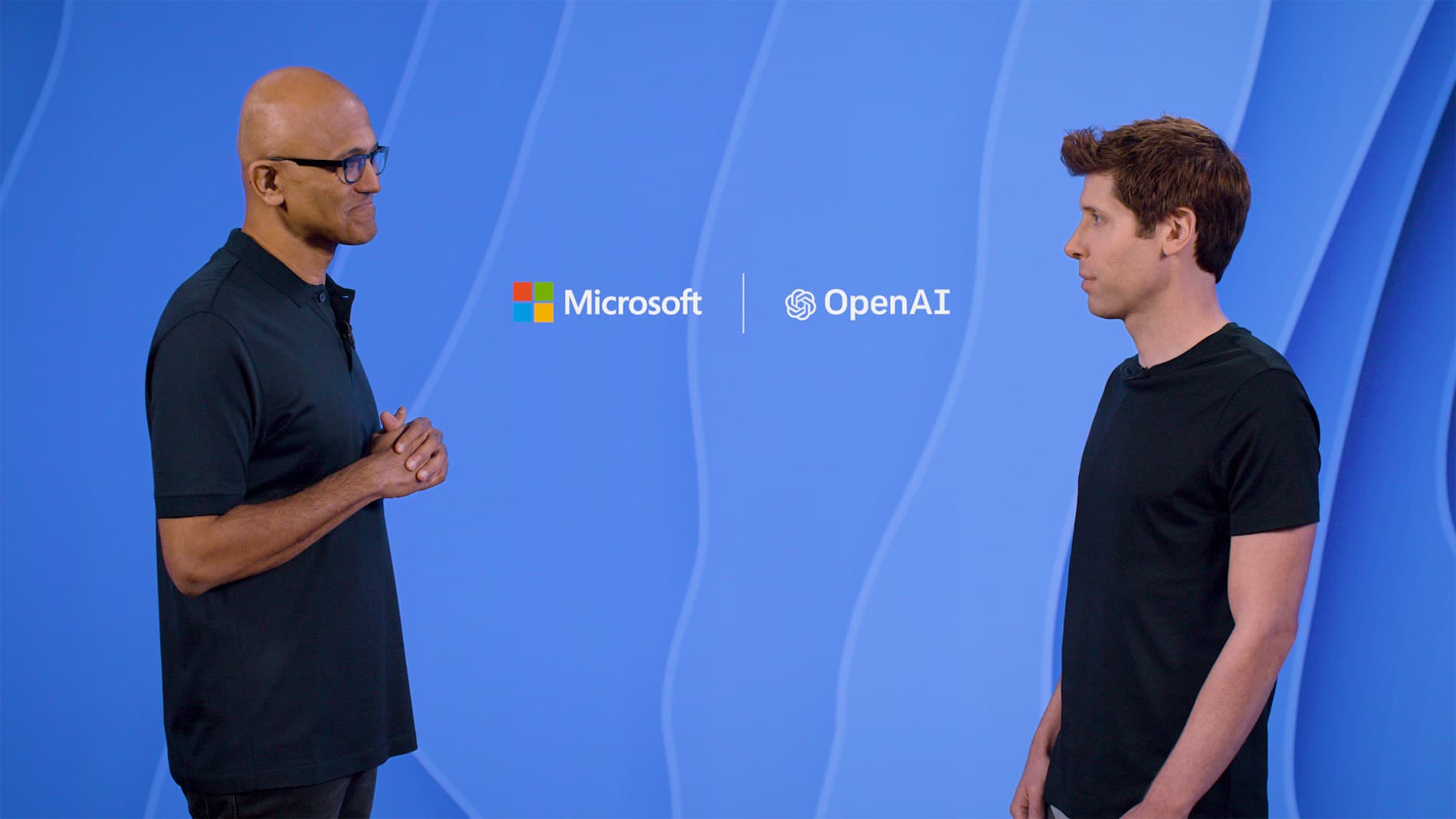We're loading the full news article for you. This includes the article content, images, author information, and related articles.
The restructured partnership solidifies Microsoft’s position in the global AI race and could accelerate AI adoption in Kenya, building on Microsoft's recent billion-dollar local investment.

GLOBAL – Tech giant Microsoft and artificial intelligence leader OpenAI announced a landmark overhaul of their partnership on Tuesday, October 28, 2025, in a deal that redefines their collaboration and solidifies Microsoft’s stake in the future of AI. Under the new agreement, Microsoft will hold a 27% stake in OpenAI, valued at approximately $135 billion, as the creator of ChatGPT transitions into a public benefit corporation.
The agreement, which has received regulatory approval, extends Microsoft's intellectual property rights for OpenAI's models and products through 2032. In a significant financial commitment, OpenAI will purchase an additional $250 billion in Azure cloud services from Microsoft. However, in a move signaling greater independence for both entities, Microsoft will no longer have the right of first refusal as OpenAI's exclusive compute provider, allowing the AI firm to partner with other cloud services.
“As we enter the next phase of this partnership, we've signed a new definitive agreement that builds on our foundation, strengthens our partnership, and sets the stage for long-term success for both organizations,” the companies stated in a joint announcement on Tuesday.
The restructuring marks a pivotal moment in the rapidly evolving AI landscape. First initiated in 2019, the partnership has been instrumental in Microsoft's ascent as a key player in generative AI. This new deal provides both companies with greater flexibility. Microsoft can now independently pursue the development of artificial general intelligence (AGI), either on its own or with other partners. Any future declaration of AGI by OpenAI will now require verification by an independent panel of experts, a key new provision in their agreement.
This revised structure allows OpenAI to seek broader partnerships and raise capital more freely, positioning it for further growth and potential public offering. The deal simplifies a previously complex relationship that had faced internal tensions and external scrutiny over OpenAI's governance and its balance between a non-profit mission and commercial ambitions.
While the agreement is global in scope, its implications are significant for Kenya's burgeoning digital economy. Microsoft has demonstrated a substantial commitment to the region, highlighted by its May 2024 announcement of a $1 billion investment with G42 to build a comprehensive digital ecosystem in Kenya. This investment includes the construction of a geothermal-powered data center in Olkaria to host a new Microsoft Azure East Africa Cloud Region, the development of Swahili/English AI models, and extensive digital skills training.
The strengthened Microsoft-OpenAI partnership could directly accelerate these local initiatives. With extended rights to OpenAI's advanced models, Microsoft is better positioned to integrate cutting-edge AI services into its East Africa Cloud Region. This could provide Kenyan businesses, startups, and government agencies with unprecedented access to powerful AI tools through the Azure platform they are already being encouraged to adopt. The focus on developing local-language AI models, a cornerstone of the $1 billion investment, will likely benefit from this deeper collaboration, potentially leading to more sophisticated and culturally relevant AI applications for the region.
Furthermore, Microsoft's commitment to skilling one million Kenyans in AI and cybersecurity aligns with the need for a workforce capable of leveraging these advanced technologies. Recent high-level meetings between Kenyan government officials and Microsoft executives have reaffirmed this shared goal of building a robust, AI-driven economy. The enhanced partnership ensures that the AI tools and platforms at the center of these training programs remain at the forefront of the industry.
However, the rapid advancement of AI also brings challenges. Reports have previously highlighted concerns about the low wages and difficult working conditions for Kenyan content moderators involved in training AI models for companies including OpenAI. As AI integration deepens, ensuring ethical labor practices and equitable distribution of economic benefits will be a critical task for policymakers and corporate partners alike.
Ultimately, the redefined Microsoft-OpenAI alliance intensifies the global AI race. For Kenya, it underscores the strategic importance of its partnership with Microsoft, positioning the nation as a key hub for AI development and adoption in Africa. The success of this global deal will likely be measured locally by its ability to empower Kenyan innovators, create sustainable jobs, and drive inclusive digital transformation across the region.
Keep the conversation in one place—threads here stay linked to the story and in the forums.
Sign in to start a discussion
Start a conversation about this story and keep it linked here.
Other hot threads
E-sports and Gaming Community in Kenya
Active 9 months ago
The Role of Technology in Modern Agriculture (AgriTech)
Active 9 months ago
Popular Recreational Activities Across Counties
Active 9 months ago
Investing in Youth Sports Development Programs
Active 9 months ago